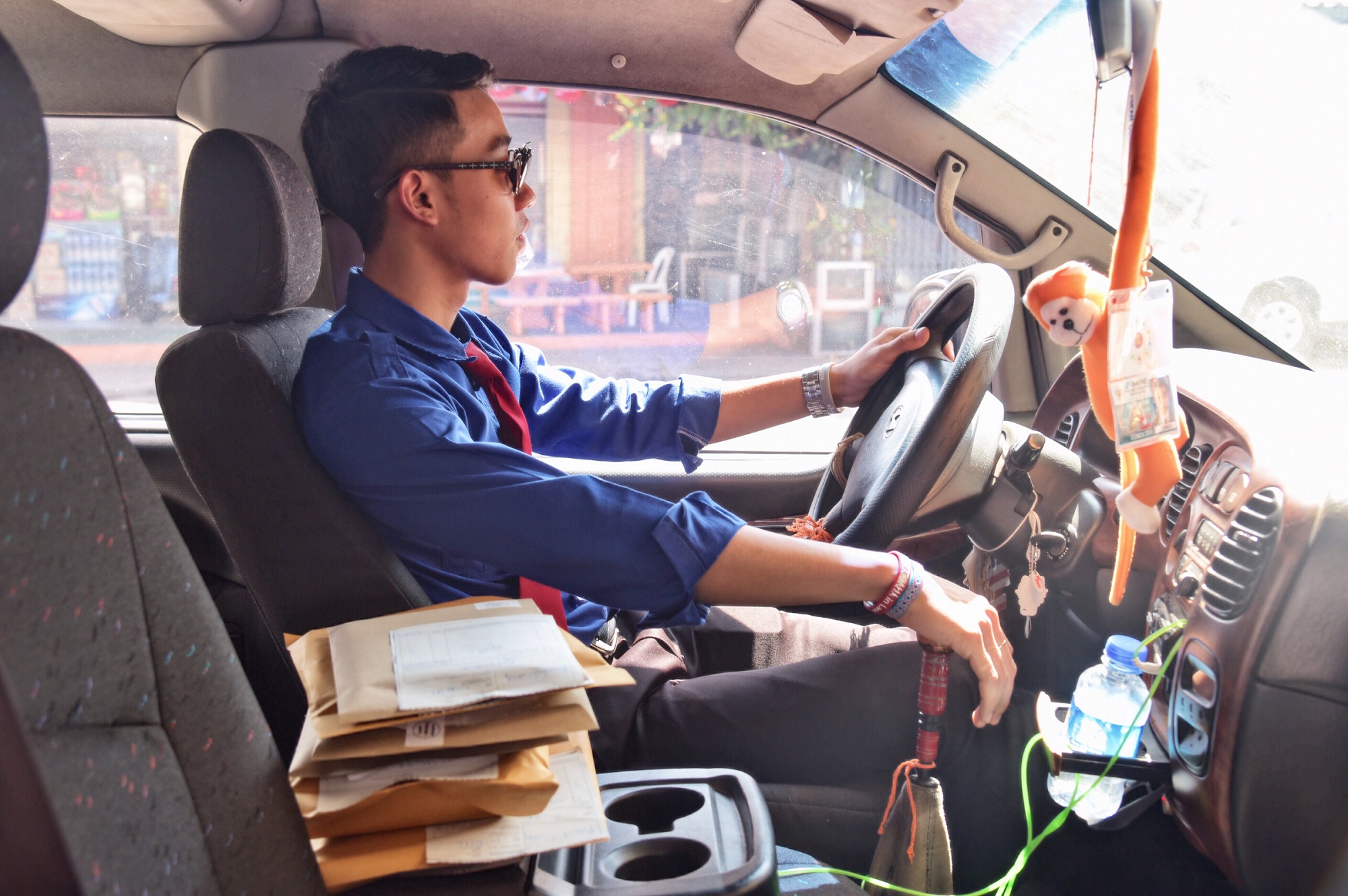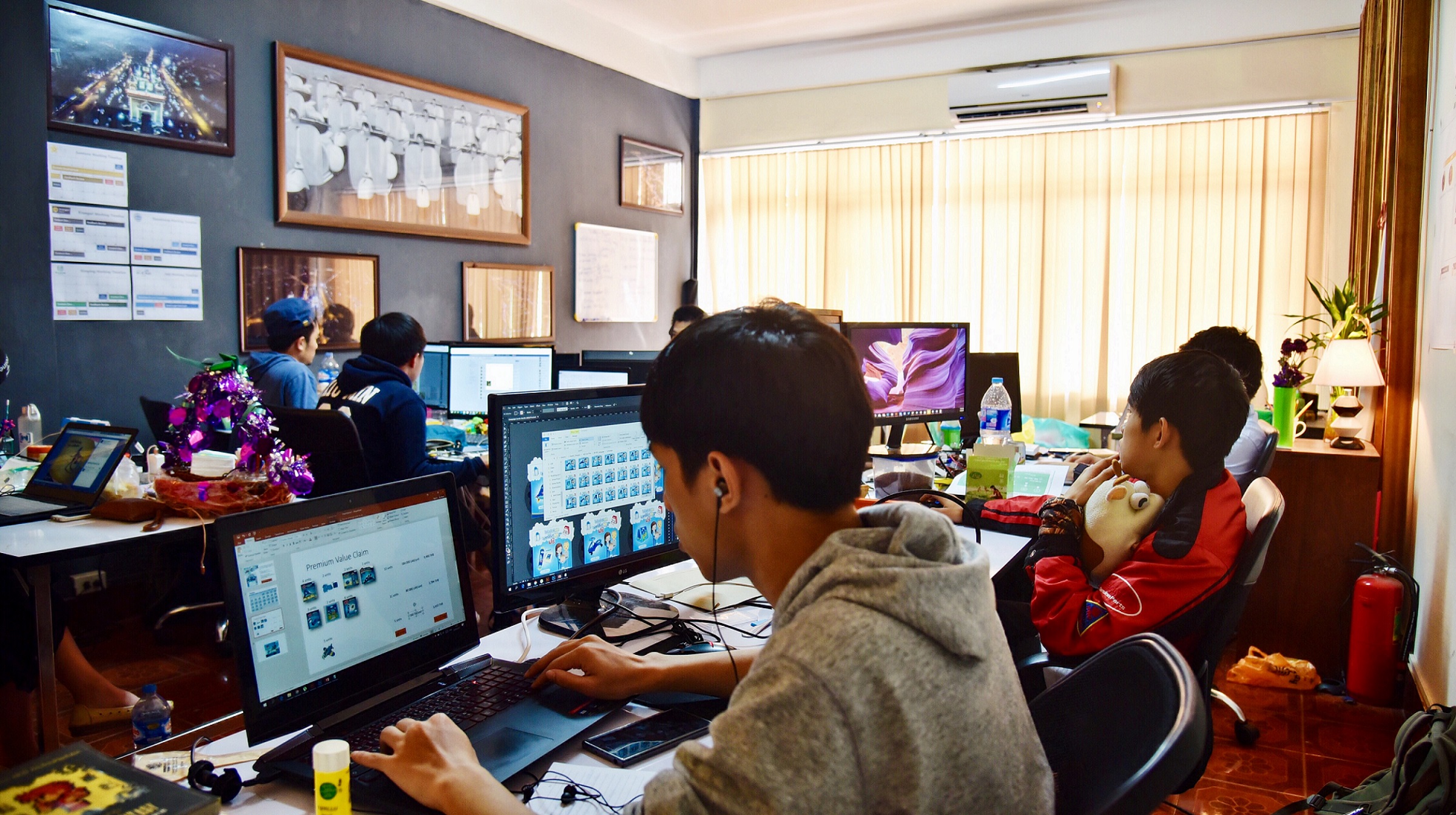When Souvanhnuvong Samountree announced he was ready to become an entrepreneur, his family was puzzled.
“The first time I told my parents, they asked me, ‘what are you doing? It’s impossible in Laos. You’re still studying in high school.’ But I don’t believe them,” said. “After six months we had a lot of customers.”
The 19-year-old, who goes by ‘Bou’, is a co-founder of Book Delivery, one of the first start-ups to emerge out of the rising Lao capital, Vientiane. True to his claim, he did become an entrepreneur while still in high school and, one year later, is at the forefront of driving a type of business the country has never seen before.
Troubled by the price and scarcity of quality books in Vientiane, Bou and his five colleagues began a web-based order and delivery service, providing literature either too expensive or not available in the country directly to customers’ doors.
“It is a big problem. I need to do reading, I need books but in Laos there are so few bookstores. People want knowledge,” he said.
The idea is simple and low-tech, a necessity in Laos where only about half of the population has internet access and smartphone use is still a new phenomenon. Book Delivery uses suppliers in Thailand and the UK to get hold of any desired book title, while also working with publishers to provide new distribution pathways for Lao authors.
“Before writers in Laos could not sell their books. People don’t know about them. We can provide the marketing and now they are selling a lot – in the thousands,” he said.

Currently revenue is still small and the number of customers is in the dozens rather than hundreds each month. And while it is not an idea that would necessarily inspire success in more advanced entrepreneurial markets around the region, it is an example of the small beginnings start-ups in Laos are experiencing.
The fledgling sector is largely the product of some grit and risk taking from Souphaphone Souannavong, a financial advisor who founded Vientiane’s first start-up node, the Toh Lao Coworking Space, in 2014.
The small hub provides a working area where young entrepreneurs are encouraged to collaborate, with fast Internet and a space for meetings and events. It was an initial gamble, she says, but hopefully a precursor to “a small Silicone Valley in Laos”.
“We started out just to test to see if it would work or not. I had lots of concerns back then but I thought ‘let’s try it out’,” she said. “We had to start from scratch.”
She cited the lack of exposure to outside markets for budding entrepreneurs, which inhibits original ideas and creativity, and a lack of understanding about how start-ups even operate as initial and prevailing challenges. Still, she has confidence about the sector’s future success.
“I don’t believe that if other countries can make it, why we can’t. It might be slower but I’m sure it’s going to be there. The market is small, but it’s still something to be reached out to,” she said.
And that market is growing bigger by the day.
“YOU’RE THE BOSS”
Vientiane is expanding rapidly; its population is expected to grow by 54.5 per cent from 2015 to 2025, which will take the number of inhabitants to an estimated 1.6 million.
While Souannavong admits Vientiane is some years away from developing a tech city akin to Malaysia’s Cyberjaya, in March she will take the next step by opening a larger co-working space with an accelerator program, something which could eventually lead to a start-up tapping into a bigger regional market.
And while Vientiane is growing it is still dwarfed by other major competing hubs like Ho Chi Minh City and Bangkok. This is affecting the input of angel investors, an important lifeblood for entrepreneurs looking to grow their business but lacking capital or the ability to generate profits.
Steve Landman, a member of the Mekong Angel Investment Network, launched and supported by the Australian government, says investment is slow in Laos due to the infancy of the start-up scene.
“We have not found any investable companies at this point,” he said. “Market size is important. Especially, is the product or service expandable into other markets? Because most of the countries in the Mekong region don’t amount to sustainable markets.”

For Vientiane, the intention is to unearth the city’s “start-up hero”. It is a crucial step too, Souannavong says, to unlocking understanding among the population, most of whom do not value risk-averse enterprise.
That traditional resistance, mostly among the older generation, is an active hurdle for one group hoping to be the champion of Vientiane’s start-up scene.
Souliyo Vongdala and Mangkonephet Sayasane are co-founders of Bizgital, an increasingly profitable marketing solutions company serving international clients like Coca Cola and Heineken, and Foxpress, an online courier service.
The latter project tackles a clear problem in Vientiane – the mail system – yet uptake is still modest.
“In Laos, the postal service is very poor and insecure. If you ship something very valuable from overseas to here, most likely it’s going to get lost or stolen,” Vongdala, a confident, US-educated 25-year-old said.
‘But in Laos it’s really hard to change people,” he said.
It comes down to engrained culture, he says, explaining how the families of most of his colleagues generally do not support entrepreneurship, instead encouraging them to take up traditional secure jobs in banks or corporations.
“The change is coming. The younger generational will be even better…they are reading about success stories and they have energy to do something,” he said.
Foxpress currently mostly services online sellers, who use Facebook as a platform to do business. Once more people start using the service, they hope to create a central app that will act similarly to Uber, but for couriers.
“Laos is a small country, there are tonnes of problems that need to be solved so that means there are tonnes of options. If you fail the first one, you do the second, you do the third one or you do the tenth,” Vongdala said.
“But if you get one thing right…you might be making money while solving a problem, and that’s something you should be proud of.”
At Book Delivery, Bou too has bigger plans – to transform the business using Amazon as an inspiration. In the coming months the group aims to introduce clothing and shoes to their online offering, and further explore the opportunities for e-books, a first for the country.
“I love this. Others are afraid of failure,” he said. “If you want to do something, you should do it. You’re the boss now.”
Source : Channel News Asia



















